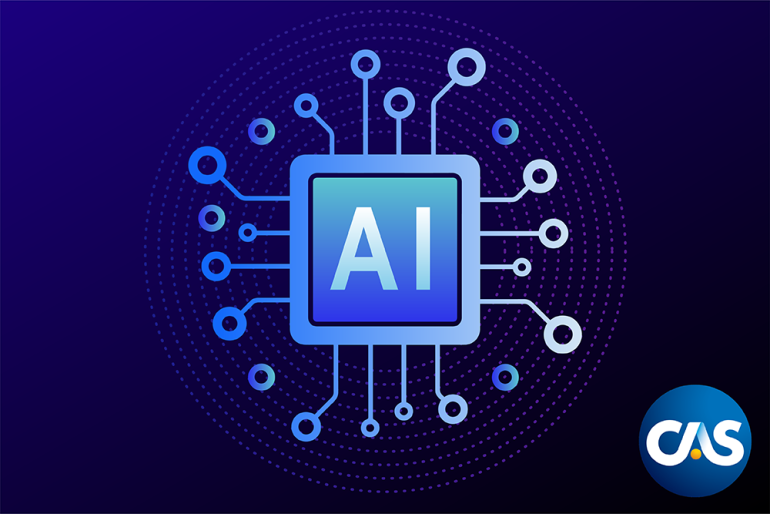Call for Monographs - Big Data, Machine Learning and Beyond

The Casualty Actuarial Society, in conjunction with the CAS Monograph Committee, is pleased to extend a Call for Monographs on the topic of “Big Data, Machine Learning and Beyond.” The call aims to develop a comprehensive source of literature with emphasis on the educational and professional needs of actuaries to foster deeper understanding of Machine Learning algorithms and their potential application in practice.
According to the U.S. Actuarial Standard of Practice No. 56 Modeling:
3.2 UNDERSTANDING THE MODEL
When expressing an opinion on or communicating results of the model, the actuary should understand the following:
a. important aspects of the model being used, including but not limited to, basic operations, important dependencies, and major sensitivities;
b. known weaknesses in assumptions used as input, known weaknesses in methods or other known limitations of the model that have material implications; and
c. limitations of data or information, time constraints, or other practical considerations that could materially impact the model’s ability to meet its intended purpose.
Machine Learning offers extreme modeling flexibility that can reveal hidden relationships and insights which might be overlooked by traditional modeling techniques; however, it is also criticized for its lack of interpretability. In response to the growing gap between the increasing interest and adoption of AI in P&C insurance industry versus the lack of consolidated materials available for actuaries in AI field, it is crucial to develop an in-depth educational resource at the current stage. Some examples of specific topics this monograph may address include:
- The current stage of big data in P&C insurance industry such as telematics data
- Different types of Machine Learning (Supervised, Unsupervised and Reinforcement Learning)
- Statistical explanation (model specifications, model assumptions and inherent limitations) on those popular ML algorithms such as Decision Tree, Random Forests, Gradient Boosting Regression, XGBoost, etc., and Deep Learning architectures including CNN, RNN, etc.
- ML modeling process and its application in practice such as feature engineering, fraud detection, ratemaking and granular reserving estimation, etc.
The call is not intended to document every technique, as the AI field is also evolving quickly with advances in technology. Instead, the purpose of the monograph is to provide a fundamental and thorough knowledge on the topic. As such, actuaries should continue to increase the depth and breadth of their knowledge to be able to discern the most appropriate technique for a given situation.
To cultivate a better educational outcome and facilitate future research, it is encouraged that the monograph be accompanied by tools or code to be posted on the CAS GitHub that allows the techniques discussed to be implemented
Authors must submit their work in accordance with the Guidelines for Submission of Monographs. The monographs will be subject to peer review prior to final acceptance.
SCOPE
The monograph series seeks to present a balanced perspective with respect to alternative approaches to solution of a given class of problems and to foster critical thinking. Although original research is encouraged, these monographs are primarily educational. Approaches providing balanced and critical evaluation of alternative methodologies are particularly welcome. Conditions of optimal application and the advantages/disadvantages of use should be explored, making it easier for a practitioner to choose suitable methods.
SUBMISSION GUIDELINES
Monographs should be prepared in accordance with the Variance template. Authors will be required to execute a copyright agreement form, which formally grants the CAS permission to publish the paper. Authors are encouraged to submit working templates in spreadsheets or other open-source formats for models or methods discussed or developed in their papers. These spreadsheets and/or programs will be posted on the CAS website along with the monographs.
TIMETABLE
Timely submission according to the timetable outlined below would ensure that a paper will be ready for presentation at an upcoming, related CAS seminar or meeting.
- Deadline for Proposals: By January 15, 2024, authors should submit proposals, including the title, a short description of the topic(s) to be addressed, and the approach that will be taken. Each proposal should be accompanied by the resumes of the author(s), indicating how their background, education, and experience bear on their qualifications to undertake the project. A list of the authors’ publications, along with authors’ contact information, should be included with the proposal, submitted via email to the Casualty Actuarial Society, droyston@casact.org.
- Acceptance of Proposals: By March 29, 2024, the Committee will decide on all proposals and will contact authors accordingly.
- Monitoring Progress: A committee member will be assigned to work with each author to monitor the paper’s progress and to provide general guidance for completion of the paper. Interim drafts, based on a schedule proposed by the author, may be requested.
- Complete Draft: By September 30, 2024, the completed paper and a 200-word abstract must be received. Each paper will be screened to assure its quality of exposition and relevance to the call.
- Final Submission: Subject to the peer review process, accepted monographs will be due to the CAS, to be published and be available on the CAS website.
QUESTIONS
Any questions on this Call may be addressed to Donna Royston at droyston@casact.org
